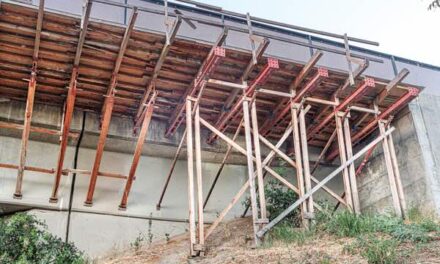Residents near the Sacramento River who want to block public access have a big advantage over the 500,000 or so people who will benefit from a new levee bike trail.
The residents have a good lawyer.
One attorney working for property owners shouldn’t matter. After all, the rest of us are represented by the Central Valley Flood Protection Board, a state agency whose mission is to serve public interests.
But that’s not how it works.
Documents obtained under the California Public Records Act tell a more complex story. For the past three years, a lawyer hired by property owners near the levee built a relationship with flood board officials.

The public wasn’t invited.
The lawyer’s work paid off last year when flood board executive officer Chris Lief authorized several temporary fences to prohibit levee access in Pocket.
Lief’s covert authorizations appear to break state laws that require public hearings on new levee fences. There were no public hearings, no votes by the flood board.
The quest for levee fences was an uphill battle for property owners and their lawyer, Brian Manning. The flood board’s position for more than a decade was no new levee fences, period.
Board President Bill Edgar publicly said the era of private levee fences was over. New fence requests were routinely rejected.
Flood board general counsel Jit Dua advised riverfront property owners if they had concerns about trespassing near the levee, they should call police.
The prospect of fences received another blow in 2020, when Mitra Emami, a flood expert from the Department of Water Resources, said levee fences presented safety hazards. They caused erosion, captured debris in high water, and impeded flood inspections and maintenance.
The message: Fences contribute to levee failure.
But Manning was tenacious. He corresponded with Sarah Backus, a staff attorney for the flood board.
Manning and Backus exchanged at least 61 emails between March and November 2021, one email every four days. Plus, two private meetings and an unknown number of phone calls.
Most of the correspondence was cordial. An exception came when Backus explained the U.S. Army Corps of Engineers controlled the fate of fences within the $1.8 billion levee repair project. The Corps removed old levee fences in Pocket.
Manning responded, “This shirking of responsibilities and backtracking does not inspire trust as the process moves forward.”
Manning tried to convince the flood board to use Corps construction fences to keep the public away from the levee. Manning wrote, “We remain hopeful that we, collectively, can convince the Corps to keep fences and gates up.”
Backus checked with Corps officials. “I am sorry,” she told Manning, “but despite our best efforts, which included calls and meetings at different levels of USACE hierarchy, USACE has advised us that the construction fencing will be coming down.”
Manning raised the prospect of a lawsuit in September 2021. He wrote, “I believe failure to secure the levee will amount to a taking. Having a plan in place now to secure this segment of levee is the easiest way to avoid litigation.”
The “taking” refers to inverse condemnation. That’s where the government allegedly damages private property without compensation. The state owns the levee. But about 70 property owners hold easements they claim prohibit public access.
Facts don’t favor the property owners. They refused to sell so-called “recreational” easements to the city.
They accepted compensation money when the Corps removed their old fences.
The city plans to acquire easements through eminent domain and finish the levee bike path next year.
Manning never gives up. He proposed having the flood board’s new executive officer unilaterally authorize temporary fences. Flood officials said no. By law, the executive can’t authorize fences.
Then dynamics shifted. Bill Edgar retired as board president. Backus retired. Last April, Lief became the flood agency’s new executive officer.
Weeks later, Lief covertly authorized new fences for Manning’s clients. Public interests weren’t discussed.
Manning didn’t respond to interview requests. Lief says temporary fences are “minor alterations,” thus legal.
R.E. Graswich can be reached at regraswich@icloud.com. Follow us on Facebook and Instagram: @insidesacramento.















